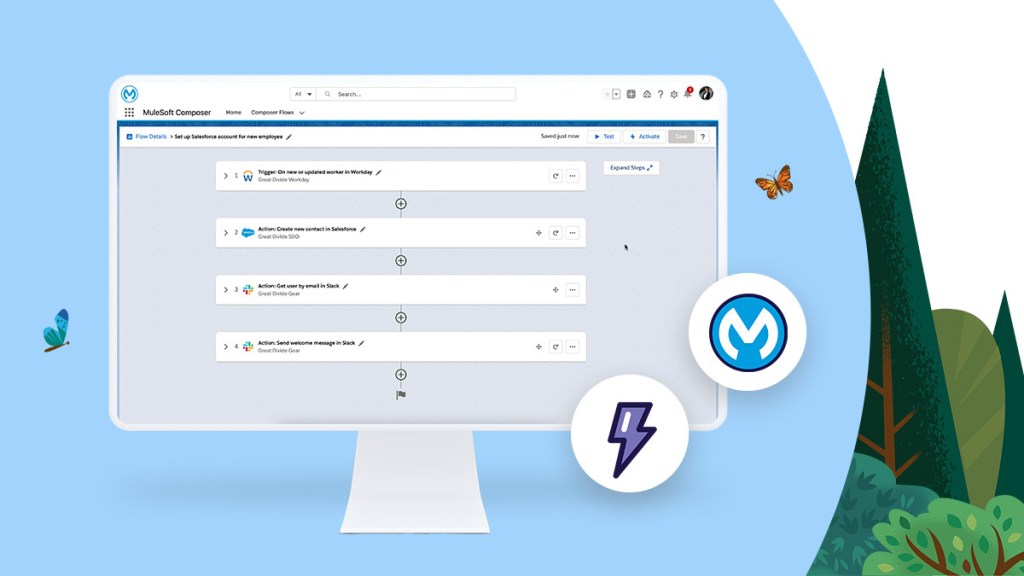Quick take: Research from Salesforce unpacks the forces shaping field service operations as companies adapt to growing customer expectations, new technologies, and an uncertain economic environment.
Efficient, personalized customer service is more important than ever — especially when it’s in someone’s home or business.
Today, 88% of customers say the experience a company provides is as important as its products or services, and 94% say service influences repeat buying decisions. As mobile representatives serving on a company’s front lines, field service teams have a unique opportunity to manage these expectations and grow customer relationships through interactions that drive repeat revenue. Amid economic uncertainty, these efforts can unlock field service’s potential as a key revenue driver.
To understand what organizations need to succeed in these efforts, Salesforce today shared a deep-dive look at field service from its recent State of Service survey data with global* insights from 1,792 field-based mobile workers and 3,393 decision makers at organizations with field service operations.
Decision makers view field service as an emerging revenue driver
Field service teams are often a company’s first physical contact for customers — a vital role that, if done well, can lead to loyal customers. In fact, 86% of decision makers at companies with field service teams believe these teams are critical to growing the business. This favorable view extends to workers themselves, with 52% of high-performing field service workers — those with self-reported excellent customer satisfaction rates — saying their company’s management views customer service as a revenue generator.
With product expertise and knowledge of customer purchases, service history, and usage data in hand, field service teams can tailor recommendations to every customers’ unique needs. That’s why 82% of organizations with field service depend on their mobile workers to upsell products and services.
of customers say that the customer service they receive influences their future buying decisions.
Field service drives productivity, cost savings, and better employee experience
Technologies used by field service organizations that leverage automation and AI help reduce response times and increase first time fix rates, enabling mobile workers to serve more customers faster and boost customer satisfaction.
These technologies also drive cost savings. An overwhelming majority (94%) of service professionals in high-performing organizations cite productivity as a major or moderate benefit of field service management — an important consideration as organizations look for ways to cut operational costs without compromising customer satisfaction.
-

Salesforce Launches Automation Everywhere Bundle to Help Companies Lower Costs, Boost Productivity, and Deliver Success Now
-

Salesforce Launches New Marketing Effectiveness Bundle to Help Companies Reduce Costs and Deliver Success Now
-

Salesforce Launches Analytics Bundle to Help Customers Increase Efficiency with Tableau and Achieve Success Now
-

Salesforce Announces Patient 360 for Health Innovations to Help Lower Costs and Deliver More Efficient Care for Patient Success Now
For example, remote field service technologies like video support and self-service pages reduce truck rolls, saving organizations time and money while resolving customer issues faster.
Eighty-four percent of service decision makers say they see major returns from their field service investments. High-performing field service management users cite increased agility (90%), higher productivity (55%), and improved job satisfaction (53%) using field service management tools. Field service agents also note the advantages, with 93% of mobile workers in high-performing organizations saying job satisfaction is a major benefit.
of decision makers consider frontline service teams critical to growing the business.
AI and automation power better customer service in support of overloaded mobile workforces
According to Salesforce’s latest State of Service report, case volumes for most service teams (54%) rose between 2021 and 2022. In response, many organizations have bolstered mobile workforces by increasing budgets (62%) and headcount (61%) over the past year.
Most mobile workers (66%) feel empowered by management to treat customers with empathy, but 82% struggle to balance speed and quality when providing service and support. This is where AI and automation have an essential role in delivering exceptional customer experiences at scale.
Seventy-eight percent of high-performing field service organizations — those with self-reported excellent customer satisfaction rates — use AI, and 83% use workflow automation, versus 59% and 68% of underperforming and moderate performing organizations, respectively.
With AI-powered tools like chatbots, mobile workers can efficiently schedule appointments, get real-time updates, and find answers to questions quickly. Using conversational AI, service agents can instantly transcribe conversations, saving time and eliminating the need for customers to repeat themselves. Automation-enabled workflows make it easy to create new accounts, place equipment orders, schedule appointments, and automate away time-consuming, mundane tasks. This provides more time for agents to establish long-lasting customer relationships.
Field service technology helps companies deliver success now
The field service management market is expected to grow to an estimated $8.06 billion by 2028 as companies work to meet increasing customer demand while keeping costs under control.
The companies that use field service technologies that leverage AI and automation are setting themselves up for success: Boosting employee productivity, increasing customer satisfaction, reducing costs, and building brand loyalty.
More information:
- For more insights, download the Power Your Frontline with Field Service Management guide here.
- Learn how Salesforce Field Service solutions empower organizations to increase productivity and exceed customer expectations here.
- Read more on the state of customer service today here.
Methodology
*Data is based on a subset of a double-blind survey conducted from May 6 to June 13, 2022, that generated 8,050 responses from customer service professionals across 36 countries in North America, South America, Europe, Africa, and Asia Pacific. This subset includes 1,792 field-based mobile workers and 3,393 decision makers at organizations with field service operations. All respondents are third-party panelists.


















